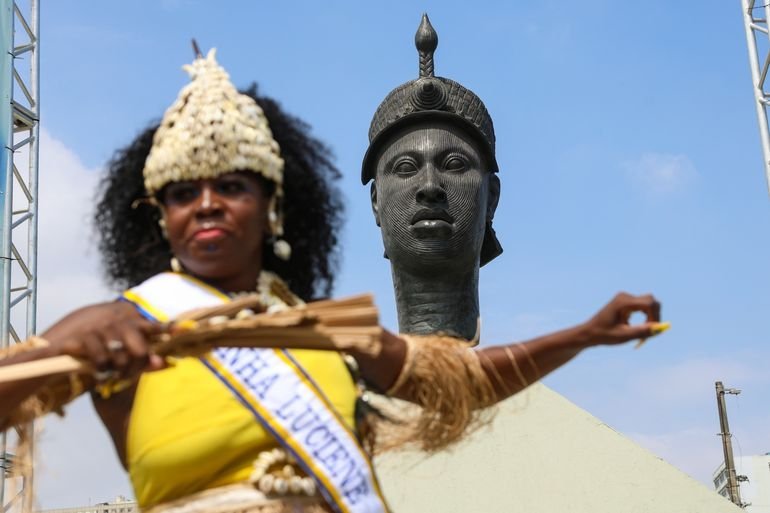Streets across Rio de Janeiro erupted in song, dance and vibrant displays of Afro-Brazilian heritage on Thursday as crowds marked Black Consciousness Day, a national holiday dedicated to honoring the history, resistance and cultural legacy of Afro-descendant Brazilians.
The city’s famed Tia Ciata procession named after the influential cultural matriarch whose early 20th century home helped shape the evolution of samba drew thousands. Her legacy remains central to Rio’s identity, bridging Afro-Brazilian religion, community life and artistic expression.
Actor Marcelo Valentim, celebrating among the crowds, reflected on the day’s meaning. “We are raised in the favela, we speak straight truth. They wanted me dead, I’m alive. They wanted me poor, I’m rich,” he said.
Gracy Mary Moreira, Tia Ciata’s great-granddaughter, described the holiday as a moment for national reflection. She said the day represents “resistance, speaking about our culture, exchanging knowledge,” adding that it stands as a powerful celebration of Afro-Brazilian identity.
Black Consciousness Day is observed annually on November 20 to commemorate the death of Zumbi dos Palmares, a historic figure who led resistance movements against enslavement under Portuguese colonial rule. Zumbi is widely regarded as a symbol of African freedom and resilience in Brazil.


